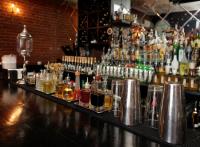 Add My Company
Add My Company
Sign In
HOW TO SUPPLY YOUR CUSTOMERS WITH CELLAR GAS
21-02-2022

HOW TO SUPPLY YOUR CUSTOMERS WITH CELLAR GAS
Becoming an Adams Gas stockist can open up lucrative revenue streams for your existing business and complement your current offering and services. We have a huge range of gases available for our stockist network to supply their customers across many different industries. Some stockists choose to offer our full range, whilst others specialise in providing gas for specific sectors and become experts in what they do. One area you may decide to focus on is cellar gas, which is used by thousands of businesses up and down the country every day. Today, we’re going to take a closer look at how to supply your customers with cellar gas.
Becoming an Adams Gas stockist can open up lucrative revenue streams for your existing business and complement your current offering and services. We have a huge range of gases available for our stockist network to supply their customers across many different industries. Some stockists choose to offer our full range, whilst others specialise in providing gas for specific sectors and become experts in what they do. One area you may decide to focus on is cellar gas, which is used by thousands of businesses up and down the country every day. Today, we’re going to take a closer look at how to supply your customers with cellar gas.
What Types of Cellar Gas Could You Supply?
When we talk about cellar gas, we aren’t just referring to one gas type. Businesses that rely on cellar gas often require more than one style, depending on the products they’re serving. If you were to supply cellar gas as a stockist, you should expect to see demand for the following gases:
Pure CO2
100% CO2 cylinders are perhaps the most common type of cellar gas, used predominately in dispensing highly carbonated drinks such as lagers, ciders and post-mix soft drinks (cola, lemonade, soda water, etc.)
30/70
A mix of 30% CO2 to 70% nitrogen is used for dispensing creamy stouts and bitters. The high nitrogen content gives these particular beers their characteristic, smooth mouthfeel.
60/40
Another mix of CO2 and nitrogen, 60/40 is perfect for IPA and pale ales – some venues may even run lagers on 60/40 because it is more stable at a higher ambient temperature than CO2. However, it will affect the taste of the product over time.
You don’t have to be an expert in every single beer or soft drink and which gas they all require to stock cellar gas. Venues will know which gas they require based on instructions from their suppliers – all you have to do is ensure you’re stocking the gas they need and supplying the correct volumes at a consistent rate that means their business demands.
How Much Cellar Gas Do Businesses Need?
It’s impossible to put a blanket number on how much cellar gas you could supply as every individual business will have its own requirements. How much cellar gas is needed will depend on several factors, including:
The businesses capacity
The businesses product offering
Whether the business is wet or food-led
Seasonal uplifts and dips in trade
For example, a pub with a big beer garden will likely consume far more cellar gas in the summer months when everyone is enjoying a beer in the sun and less in the colder months when rain and low temperatures deter people from gathering outside. Furthermore, a small, unlicensed café that only dispenses soft drinks won’t require anywhere near as much cellar gas as a high-volume nightclub. That said, a boutique craft beer bar may require a broader range of gases for its varied product offering when compared with said nightclub.
When it comes to understanding how much cellar gas you could be supplying regularly to local businesses, the best thing to do is talk to the business owners, make connections and understand each venue’s requirements.
Is Cellar Gas Demand Seasonal or Year-Round?
Supplying cellar gas is a year-round operation if you’re supplying to bars, restaurants and pubs. However, as discussed, you may see peaks and troughs in demand that correlate with seasonal trade. For example, venues with beer gardens often see an uplift in cellar gas consumption in the summer months. Conversely, many hospitality businesses without beer gardens will require more gas throughout the Christmas period when people are out celebrating the festivities. All in all, though, supplying cellar gas to the hospitality industry is a lucrative, year-round commitment.
If you choose to focus on home bar bottle gas supplies or cellar gas for mobile event bars, you may find demand more sporadic. This doesn’t mean it isn’t a revenue stream worth pursuing; in fact, supplying smaller cylinders for domestic use or to smaller vendors can be a great jumping-off point for stockists who don’t want to commit to providing larger venues with higher demands immediately.
Things To Bear In Mind When Supplying Cellar Gas
Gas safety is incredibly important for protecting yourself, your staff, and the staff at the businesses you’ll be supplying cellar gas to. So with safety in mind, here are some pointers on supplying cellar gas safely and efficiently:
Never supply damaged or faulty cylinders to your customers
Ensure you’re wearing the correct PPE when moving cylinders
If you’re delivering to a business, make sure the path down to the cellar is clear of obstructions and free from hazards like wet floors
Have a read of our comprehensive guide on handling and storing CO2 gas for more safety information.
Become an Adams Gas Stockist
If you’ve read all of the above and spotted potential business opportunities for supplying cellar gas to businesses and individuals in your local area, get in touch with us today. We’re always on the lookout for viable companies to join our stockist network and work alongside us to deliver more of our high-quality gases to the UK.
For more information on HOW TO SUPPLY YOUR CUSTOMERS WITH CELLAR GAS talk to Adams Gas
Enquire Now
List your company on FindTheNeedle.

